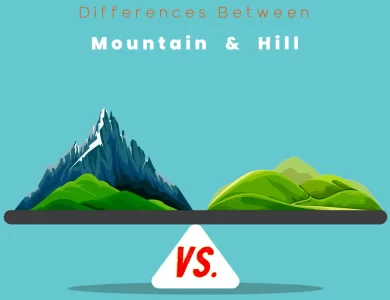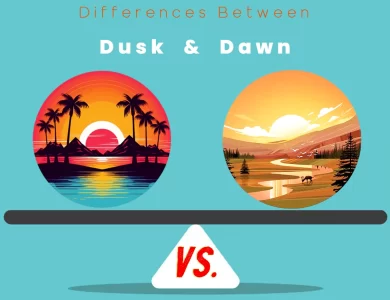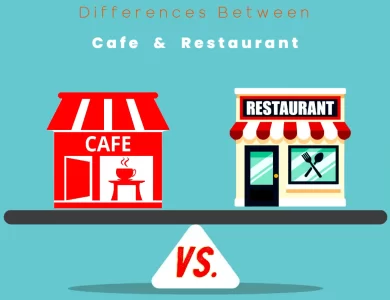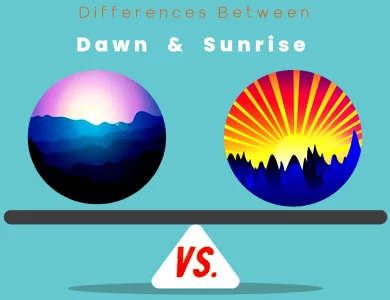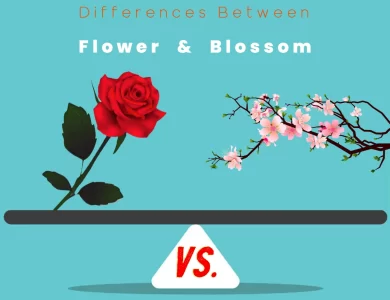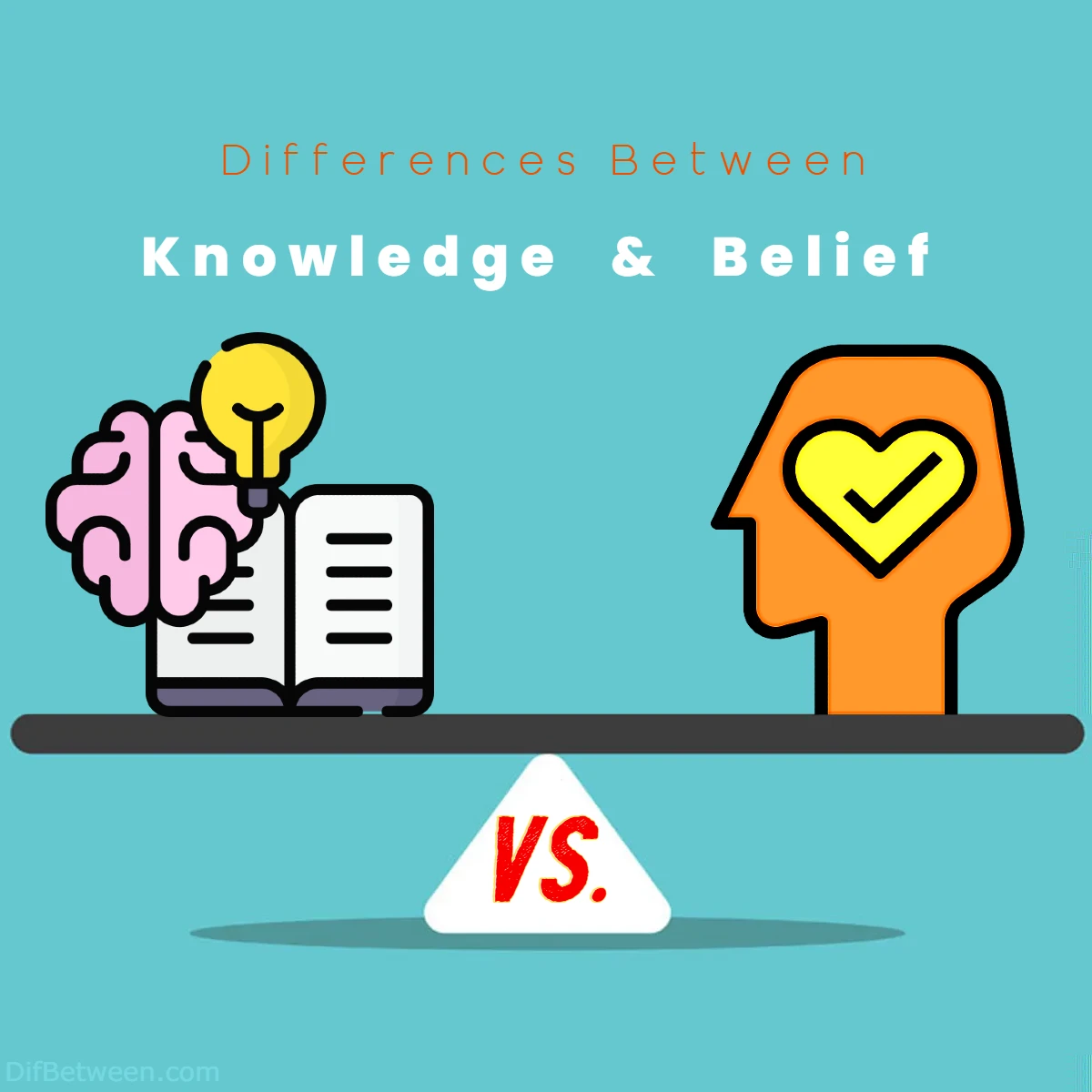
| Aspect | Knowledge | Belief |
|---|---|---|
| Nature | Based on evidence and justification | Subjective and personal |
| Certainty | High degree of certainty | Varies in certainty |
| Objectivity | Tends to be objective | Subjective |
| Types | Empirical and conceptual | Personal, religious, cultural, etc. |
| Acquisition Process | Systematic, through inquiry and evidence | Influenced by personal experiences, culture, and emotions |
| Source of Influence | Observation, logic, evidence | Personal experiences, culture, emotions |
| Openness to Change | Open to revision with new evidence | Can be resistant to change |
| Role in Decision-Making | Informs rational decisions | Influences personal choices |
| Role in Professional Fields | Essential for expertise and progress | Can affect values and ethics |
| Cultural Significance | Valued for its contribution to understanding the world | Integral to cultural identity |
| Impact on Behavior | Drives progress and innovation | Shapes moral and ethical frameworks |
| Freedom | Free from personal bias | Reflects personal preferences |
| Ethical Considerations | Truthfulness, responsible research, respect for intellectual property | Freedom of belief, tolerance, ethical consistency, respect for the beliefs of others |
| Interplay | Can inform beliefs | Beliefs can influence interpretation of knowledge |
Knowledge, the bedrock of our understanding, is like a sturdy bridge built on facts and evidence. It’s the realm of empiricism and logic, where we tether our convictions to the solid ground of proof. On the other hand, belief, with its colorful tapestry of subjectivity, dances to the rhythm of personal experiences, culture, and emotions. It’s the canvas upon which our individual and collective identities are painted, and it often leads the way in shaping our moral compass.
Differences Between Knowledge and Belief
The main differences between knowledge and belief lie in their nature and acquisition. Knowledge is based on evidence and justification, characterized by a high degree of certainty, and often objective. It encompasses empirical and conceptual understanding and is open to revision with new evidence. In contrast, belief is subjective, influenced by personal experiences, culture, and emotions, and can vary in certainty. Beliefs can be deeply ingrained and resist change, shaping personal choices and moral frameworks. Understanding these distinctions is crucial in navigating the complex landscape of human cognition.
The Nature of Knowledge and Belief
Knowledge: A Foundation of Certainty
Knowledge can be seen as a foundation of certainty. It represents information that is accepted as true, supported by evidence or justification, and often considered objective. Knowledge is what we can affirm with a high degree of confidence. It is the culmination of facts, data, and information that have been rigorously tested and validated through empirical methods or logical reasoning.
Knowledge can be categorized into two main types: empirical knowledge and conceptual knowledge. Empirical knowledge is rooted in direct sensory experience or observation, such as knowing that water boils at 100 degrees Celsius at sea level. Conceptual knowledge, on the other hand, is based on abstract concepts and is not tied to sensory experience, like understanding the concept of justice or the laws of mathematics.
Belief: A Realm of Subjectivity
Belief, in contrast, resides in the realm of subjectivity. It represents what an individual accepts as true or plausible, often in the absence of concrete evidence or complete certainty. Beliefs can vary widely from person to person and can be influenced by personal experiences, cultural background, upbringing, and emotional factors.
Beliefs can encompass a broad spectrum of ideas, from religious and philosophical beliefs to personal convictions and opinions. They can be deeply ingrained and play a significant role in shaping an individual’s worldview and behavior. Unlike knowledge, beliefs do not necessarily require empirical validation or logical proof, making them inherently subjective.
To further understand the nature of knowledge and belief, let’s compare them in a table:
| Aspect | Knowledge | Belief |
|---|---|---|
| Basis | Supported by evidence or justification | Often lacks concrete evidence |
| Certainty | High degree of certainty | Can vary in certainty |
| Objectivity | Tends to be objective | Subjective |
| Types | Empirical and conceptual | Varied, including personal, religious, etc. |
| Source of Influence | Observation, logic, evidence | Personal experiences, culture, emotions |
| Openness to Change | Open to revision with new evidence | Resistant to change |
Acquisition of Knowledge and Belief
Knowledge: A Process of Inquiry
The acquisition of knowledge is often a systematic process that involves inquiry, exploration, and critical thinking. It is typically grounded in the scientific method, where hypotheses are formulated, experiments are conducted, and conclusions are drawn based on empirical evidence. In this process, knowledge is refined and updated as new information becomes available.
Knowledge can also be acquired through formal education, where established bodies of knowledge are passed down from experts to learners. Textbooks, academic institutions, and peer-reviewed research papers are some of the key sources of knowledge in this context. Additionally, knowledge can be shared through oral tradition, mentorship, and collaborative endeavors.
Belief: Shaped by Subjective Factors
Beliefs, on the other hand, are often shaped by subjective factors and may not follow a structured process of acquisition. Personal experiences, upbringing, culture, and emotional attachments play significant roles in the formation of beliefs. Beliefs can be deeply ingrained from childhood or acquired later in life through exposure to different perspectives and worldviews.
Beliefs can also be influenced by social and peer pressure, as individuals may conform to the beliefs of their social groups or communities. While beliefs may not always be founded on empirical evidence, they can still be profoundly influential in guiding an individual’s actions and decisions.
Let’s summarize the acquisition of knowledge and belief in a table for clarity:
| Aspect | Knowledge | Belief |
|---|---|---|
| Acquisition Process | Systematic, based on inquiry and evidence | Subjective, influenced by personal experiences, culture, emotions |
| Education and Training | Formal education, scientific method | Informal, cultural, and social influences |
| Revision and Updating | Open to revision with new evidence | May be resistant to change |
The Impact of Knowledge and Belief
Knowledge: A Source of Empowerment
Knowledge is often considered a source of empowerment and progress. It equips individuals with the information and skills needed to make informed decisions, solve problems, and contribute to society. It forms the basis for technological advancements, medical breakthroughs, and scientific discoveries that shape the world.
In fields such as medicine, engineering, and technology, knowledge is essential for innovation and improvement. It enables professionals to develop new treatments, build safer infrastructure, and create more efficient systems. In governance and policy-making, knowledge informs decisions that affect the well-being of entire communities and nations.
Belief: A Driver of Behavior
Beliefs, on the other hand, are powerful drivers of behavior. They can influence how individuals perceive the world, interact with others, and make choices. Beliefs can provide a sense of purpose and identity, shaping an individual’s moral and ethical framework.
Religious beliefs, for instance, guide the moral conduct of billions of people around the world. Political beliefs influence voting patterns and policy advocacy. Personal beliefs can determine lifestyle choices, such as dietary preferences or environmental activism. Beliefs can foster a sense of belonging to a particular community or ideology.
Let’s examine the impact of knowledge and belief in various aspects of life:
| Aspect | Knowledge | Belief |
|---|---|---|
| Decision-Making | Informs rational decisions | Influences personal choices |
| Innovation and Progress | Drives scientific advancements | Shapes cultural and societal norms |
| Professional Fields | Essential for expertise and progress | Can affect values and ethics |
| Cultural Significance | Valued for its contribution to understanding the world | Integral to cultural identity |
The Intersection of Knowledge and Belief
While knowledge and belief are distinct concepts, they often intersect in our daily lives. It’s essential to recognize that beliefs can be informed by knowledge, and knowledge can be influenced by beliefs.
Belief Informed by Knowledge
Beliefs can be influenced and shaped by knowledge. When individuals acquire new information or gain a deeper understanding of a subject, it can lead to a shift in their beliefs. For example, learning about the scientific evidence for climate change can lead to a change in one’s beliefs about environmental issues.
Knowledge Influenced by Belief
Conversely, an individual’s beliefs can influence their interpretation of knowledge. Confirmation bias, for instance, occurs when people selectively interpret information in a way that confirms their existing beliefs. In such cases, individuals may be less receptive to new knowledge that contradicts their established beliefs.
The intersection of knowledge and belief can be both dynamic and complex. It highlights the importance of critical thinking and open-mindedness in evaluating information and forming well-rounded perspectives.
The Influence of Knowledge and Belief on Society
The distinctions between knowledge and belief become even more pronounced when we consider their impact on society as a whole. How they shape our collective understanding, behavior, and decision-making processes are critical aspects to explore.
Knowledge: A Pillar of Rational Governance
In the realm of governance and public policy, knowledge holds a pivotal role. Decisions that affect the welfare of a nation or community should ideally be based on facts, data, and empirical evidence. In democratic societies, policymakers rely on expert opinions and research to formulate laws and regulations.
Knowledge-based decision-making is crucial for addressing complex societal issues such as healthcare, environmental protection, and education. For example, healthcare policies should be guided by medical knowledge and scientific research to ensure the well-being of citizens. Environmental policies should be grounded in ecological knowledge to address issues like climate change and habitat preservation effectively.
Moreover, knowledge promotes transparency and accountability in governance. Citizens have the right to access information and evaluate the rationale behind government decisions. In this context, knowledge empowers individuals to participate in the democratic process and hold their leaders accountable.
Belief: The Fabric of Cultural Identity
Beliefs are deeply woven into the fabric of cultural identity and heritage. They influence traditions, rituals, and social norms that define a community’s way of life. Cultural beliefs often carry historical significance, connecting present generations to their ancestors and their shared history.
Religious beliefs, for instance, guide the moral and ethical principles of entire societies. They influence laws, customs, and ceremonies. These beliefs provide individuals with a sense of purpose and belonging, fostering a sense of community and shared values.
While cultural beliefs can be a source of unity and cohesion, they can also be a source of conflict when different belief systems clash. Religious and ideological differences have, at times, led to social and political tensions and even conflict on a global scale.
Knowledge and Belief in Education
Education plays a vital role in shaping both knowledge and belief. Schools and educational institutions are responsible for imparting factual information, promoting critical thinking, and fostering open-mindedness.
Knowledge in Education
In formal education systems, knowledge is systematically transmitted to students. Subjects like mathematics, science, and history are taught based on established facts and principles. The scientific method is often emphasized, encouraging students to question, experiment, and seek empirical evidence.
Knowledge-based education equips students with the skills needed for various professions, from engineering to medicine. It also fosters a sense of intellectual curiosity and inquiry, which can lead to further discoveries and innovations.
Belief in Education
Education is not limited to knowledge alone; it also plays a role in shaping beliefs. Educational environments can expose students to diverse perspectives, ideologies, and cultural traditions. This exposure can influence their beliefs and values.
Moreover, education can promote tolerance and respect for differing beliefs. It can teach students to appreciate the richness of diversity and encourage dialogue and understanding among people with contrasting worldviews.
The Role of Media and Information
In the age of information, the media plays a significant role in shaping both knowledge and belief. The way information is presented and interpreted can influence public perception and opinion.
Knowledge and the Media
Media outlets, particularly news organizations, have a responsibility to provide accurate, well-researched information. Journalistic integrity, fact-checking, and evidence-based reporting are crucial in ensuring that knowledge is disseminated to the public in a reliable and unbiased manner.
However, the media’s role in spreading knowledge can sometimes be compromised by sensationalism, bias, or misinformation. It is essential for consumers of media to critically evaluate the information they receive and seek multiple sources to verify facts.
Belief and the Media
Media also has a significant impact on belief systems. It can shape public opinion on various issues, from political ideologies to social norms. Television, movies, and social media platforms can reinforce or challenge existing beliefs.
The echo chamber effect, where individuals are exposed primarily to information that aligns with their existing beliefs, can further entrench belief systems. On the other hand, exposure to diverse viewpoints through the media can lead to the reconsideration of beliefs.
The Challenge of Balancing Knowledge and Belief
Balancing knowledge and belief can be a complex and ongoing challenge. Individuals must navigate a world where the boundaries between facts and opinions can become blurred. Here are some considerations:
Critical Thinking and Skepticism
Promoting critical thinking skills is essential in distinguishing between knowledge and belief. Individuals should question information, seek evidence, and assess the credibility of sources. This skepticism can help prevent the uncritical acceptance of beliefs without a basis in knowledge.
Open-Mindedness and Tolerance
In a diverse and interconnected world, open-mindedness and tolerance are crucial. While knowledge provides a foundation of understanding, it is essential to respect the beliefs of others, even when they differ from one’s own. Constructive dialogue and mutual respect can bridge gaps and foster understanding.
Continual Learning and Adaptation
Both knowledge and belief should remain open to revision and adaptation in light of new information and experiences. It is a sign of intellectual growth and maturity to be willing to change one’s beliefs in the face of compelling evidence or reasoned arguments.
The Ethical Dimensions of Knowledge and Belief
Beyond their cognitive and societal implications, knowledge and belief also carry ethical considerations. How we acquire, use, and share knowledge, as well as how we respect the beliefs of others, are ethical dimensions worth exploring.
Ethics of Knowledge
Truthfulness and Honesty
The ethical use of knowledge demands truthfulness and honesty. When individuals or institutions possess knowledge, they have a responsibility to convey it accurately and transparently. Deliberate misinformation or withholding of critical knowledge can lead to significant harm.
Responsible Research and Innovation
In fields of research and innovation, ethical considerations are paramount. Scientists and researchers are expected to conduct experiments with integrity and avoid practices that compromise the validity of their findings. Ethical research safeguards against conflicts of interest, plagiarism, and manipulation of data.
Respect for Intellectual Property
Intellectual property rights are integral to the ethical use of knowledge. Acknowledging and respecting patents, copyrights, and trademarks ensures that creators and innovators are appropriately recognized and rewarded for their contributions.
Open Access to Knowledge
Ethical considerations extend to the accessibility of knowledge. Efforts to promote open access to information and equitable distribution of knowledge are seen as ethical imperatives. This includes ensuring that knowledge is not withheld from marginalized communities or used to perpetuate inequalities.
Ethics of Belief
Freedom of Belief
Respecting the ethical dimension of belief requires upholding the principle of freedom of belief. People have the right to hold and practice their beliefs without coercion, discrimination, or persecution. This principle is enshrined in international human rights agreements.
Tolerance and Pluralism
Tolerance is a fundamental ethical value when it comes to belief systems. In pluralistic societies, where diverse beliefs coexist, tolerance fosters peaceful coexistence and understanding among individuals and communities with differing worldviews.
Balancing Beliefs with Actions
Ethical belief systems should not merely be professed but also reflected in actions. One’s beliefs should inform moral conduct, and ethical consistency is expected. For example, if an individual believes in the value of environmental preservation, their actions should align with this belief through sustainable practices.
Respecting the Beliefs of Others
Ethical behavior includes respecting the beliefs of others, even when they differ from one’s own. Engaging in respectful dialogue, refraining from mockery or insult, and acknowledging the diversity of beliefs contribute to a more harmonious and ethical society.
Ethical Dilemmas at the Intersection
The ethical dimensions of knowledge and belief intersect in various ways, giving rise to complex ethical dilemmas:
Ethics of Dissemination
- How should institutions and individuals handle potentially sensitive knowledge, such as classified information or personal data?
- When sharing knowledge, how can one balance transparency with the potential harm that may arise from the dissemination of certain information?
Ethics of Belief Expression
- To what extent can one express their beliefs, especially when those beliefs might be offensive or discriminatory to others?
- What ethical responsibilities come with the expression of beliefs in the public sphere, such as on social media or in public speeches?
Balancing Knowledge and Belief
- How do individuals and societies strike a balance between knowledge-based decision-making and respecting the beliefs of those who may hold different perspectives?
- When knowledge contradicts deeply held beliefs, how should individuals navigate the tension between evidence and faith?
Ethics in Education
- What ethical guidelines should educators follow when addressing sensitive or controversial topics in the classroom, where knowledge and belief often intersect?
- How can educational institutions promote open-mindedness and critical thinking while respecting the diverse beliefs of their students?
The ethical dimensions of knowledge and belief add layers of complexity to the human experience. Ethical considerations guide us in our pursuit of knowledge, shape our beliefs, and influence how we interact with others in a pluralistic world.
To navigate this ethical landscape effectively, individuals and societies must cultivate values of honesty, truthfulness, respect for diversity, and a commitment to the responsible use of knowledge. Ethical behavior at the intersection of knowledge and belief contributes to a more just and harmonious global community, where the pursuit of truth and the respect for individual convictions coexist.
FAQs
The fundamental difference lies in their nature. Knowledge is based on evidence and justification, often objective and open to revision, while belief is subjective, influenced by personal experiences and emotions, and can vary in certainty.
Yes, they can coexist. Knowledge can inform and shape beliefs, and beliefs can influence how knowledge is interpreted or applied in various contexts.
Knowledge informs rational decisions, relying on evidence and facts. Belief, on the other hand, can influence personal choices, values, and ethical frameworks, guiding behavior in subjective and emotional ways.
Absolutely. Ethical considerations include the responsible use of knowledge, truthfulness, and respect for intellectual property. In the case of belief, ethical principles include freedom of belief, tolerance, and respecting the beliefs of others.
Beliefs can change, but they are often resistant to change, especially when deeply ingrained. New experiences, exposure to different perspectives, and critical thinking can lead to shifts in beliefs.
While knowledge tends to be objective and belief subjective, there can be overlap. Some beliefs may be informed by objective knowledge, and knowledge can be influenced by subjective beliefs when interpretation is involved.
Knowledge contributes to our understanding of the world, while belief plays a role in shaping cultural identity and values. Cultural beliefs are often passed down through generations and influence rituals and traditions.
Yes, conflicts can arise when knowledge contradicts deeply held beliefs. This tension between evidence and faith can be challenging to navigate and often requires critical thinking and open-mindedness.
Education imparts knowledge through systematic learning and encourages critical thinking. It also exposes individuals to diverse beliefs, fostering tolerance and understanding of different worldviews.
Striking a balance involves cultivating critical thinking, open-mindedness, and ethical behavior. It requires respecting the beliefs of others while seeking knowledge based on evidence and sound reasoning.
Read More:
Contents
- Differences Between Knowledge and Belief
- The Nature of Knowledge and Belief
- Acquisition of Knowledge and Belief
- The Impact of Knowledge and Belief
- The Intersection of Knowledge and Belief
- The Influence of Knowledge and Belief on Society
- Knowledge and Belief in Education
- The Role of Media and Information
- The Challenge of Balancing Knowledge and Belief
- The Ethical Dimensions of Knowledge and Belief
- Ethical Dilemmas at the Intersection
- Conclusion: Navigating the Ethical Landscape
- FAQs

